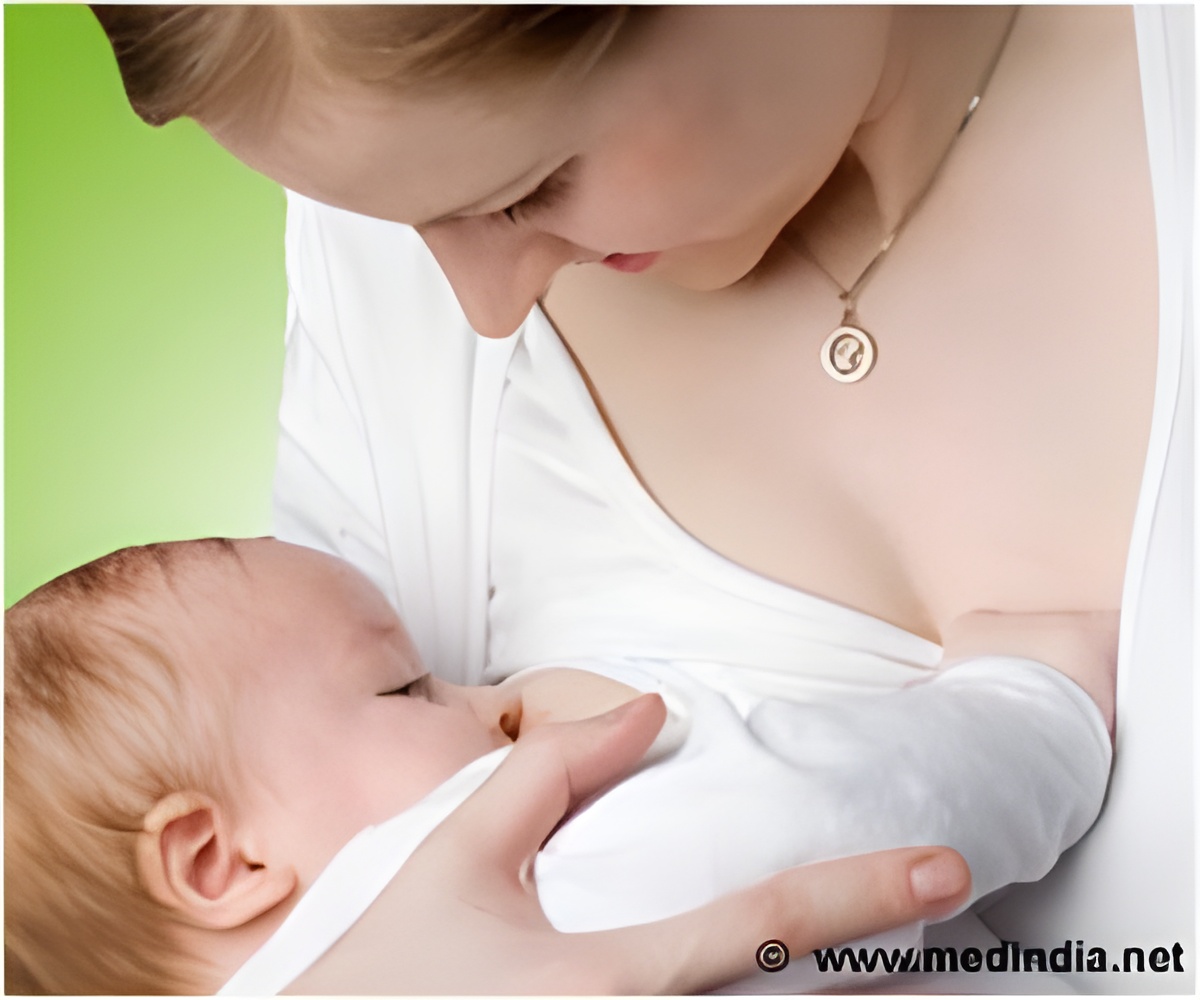Researchers have shown that it is the mother's odor that draws baby mice in for initial suckling.

Prevailing thought has been that pheromones - chemicals that trigger an innate behavior - drove the suckling response as an automatic behavior.
The new work determines that, in mice, the smells must be learned before the behavior can occur.
Suckling is a critical step for survival in mammals, which are defined by giving birth to offspring that need to feed from their mother's milk. The newborn must begin to feed soon after birth or it will die. It is a crucial, defining behavior in mammals and offers researchers an opportunity to investigate the biology of instinct.
Previous research into suckling has shown that European rabbit mothers use a pheromone to initiate suckling in their newborn babies. This led most scientists to think that all mammals were likely to use the same mechanism.
Keen to discover the pheromone involved in other mammals, the team chose the mouse because they have a parenting style similar to that of humans, nurturing and caring for their young.
Advertisement
"We have shown for the first time that it is not a pheromone response in mice, but a learned response, founded on a mix of odors: the unique signature smell of the mother," Logan said.
Advertisement
These included amniotic fluid, the mother's saliva, breast milk and urine. Only the breasts that smelt of the mother's amniotic fluid initiated suckling.
The team then tested for the presence of a pheromone in the amniotic fluid. They fed pregnant mice strong smelling foods, such as garlic, to change the signature odor of the mother.
If a pheromone was involved, the garlic would have no effect on suckling. In fact only those mice that had previous exposure to the amniotic fluid with the strong smell from their mother were able to feed successfully, proving the signature odor must be learned.
"Our work shows us that there is no species-wide pheromone that makes newborn mice feed, but that the mouse pups are actually learning their mother's unique and variable mix of smells at birth," Lisa Stowers, senior author from The Scripps Research Institute, said.
"So, although the suckling response may look like a pheromone-mediated behavior, it is actually initiated through a fundamentally different process," she said.
Supporting evidence for this conclusion comes from genetic research conducted by the team.
They found that mice who lack a critical gene in the pheromone-detecting region of the nose, called the vomeronasal organ (VNO), were able to locate the mother's nipple and to suckle.
In contrast newborn mice who lacked the ability to smell regular smells, detected in a region called the main olfactory epithelium (MOE) struggled with feeding.
"This is a neat study which shows the value of studying the development underlying an apparently 'innate' behavior," Dr Tristram Wyatt of the University of Oxford said.
"The surprising result is that mouse pups use the individual odors of the mother to find their first feed. It is a reminder of the way that evolution uses whatever works: there is more than one way to find the first milk meal.
"The rabbit has a pheromone in the milk, humans may have one around the nipple, and mice learn the individual odor of their mother. All three enable the vital task of getting the newborn to suckle," Wyatt added.
Source-ANI










